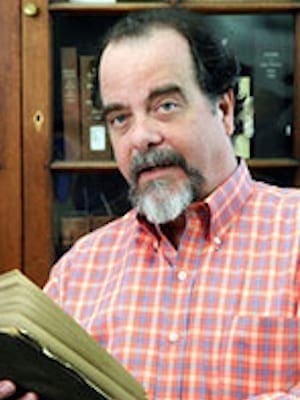Even though Mary Daly has moved beyond the traditions and language of Christianity—she calls herself “postChristian”—her work continues to inform Christian theologians.
The preacher was Mary Daly, a tenured professor of philosophy and theology at nearby Boston College. Before the service ended, the preacher had issued a ringing call to all women present to walk out of the chapel as a living symbol of “an Exodus community” willing to “leave behind the centuries of silence and darkness” that had characterized the church’s treatment of women.
Who was this new Moses? And what wilderness experiences had emboldened her to challenge women of the church to seek a new Promised Land where gender issues could no longer hinder their spiritual and intellectual development?
Like many of the prophets of Israel and the contemporary world, Mary Daly was an unlikely candidate to reform established religion. Born into a Catholic family in New York in 1928, Mary Frances Daly grew up, as she describes it, “in the Catholic ghetto.” All of her schooling through 1954 was completed in the contexts of the Catholic Church in America.
Elementary and secondary schools in New York, a bachelor’s degree from the College of St. Rose, a master’s from Catholic University, and a doctorate from St. Mary’s in Notre Dame, Ind., provided a broad and deep foundation for Daly. In retrospect, that long journey was part of the wilderness that she endured and from which she sought liberation.
What Daly wanted more than anything else was to study and some day teach Catholic theology. It was her passion, her calling.
In the mid-1950s in the United States, however, there was no place for a “daughter of the church” to follow her calling and aspiration to become a Catholic theologian. Rebuffed at every turn, Daly finally went to Switzerland to pursue a doctorate of sacred theology because the politics of the land made it impossible to exclude women from the study of theology.
Daly spent seven years in Europe, eventually earning that doctorate, and another in philosophy, from the University of Fribourg.
The story of this unlikely prophet continued to unfold during her European sojourn. The Second Vatican Council was convened in Rome during Daly’s time at Fribourg. Daly was granted “auditor” privileges at the council and was allowed to observe some of the proceedings.
The tone and direction of Vatican II was intoxicating. Daly wrote that “there was an ebullient sense of hope” because of the council’s openness. In response to that perceived hope, Daly wrote a book that would change her life and also change the shape of Christian feminism. The book, The Church and the Second Sex, was a sweeping survey of the place of women in the history of the church, and a very hopeful projection that the church would correct its treatment of women in the 20th century.
Before The Church and the Second Sex was published, Daly was hired to teach philosophy and theology at Boston College. After the book was released in 1968, two important things happened. First, Daly was fired. Secondly, in response to vigorous student protests (Daly had become a popular professor), Daly was rehired, promoted and given tenure.
Daly was stunned by the hoopla surrounding The Church and the Second Sex. It revealed to her a deep-seated resistance in the church toward granting to women a voice equal to men. The hoopla was a catalyst that pushed Daly toward her “postChristian” orientation.
The 1971 sermon at the Harvard Memorial Church was, indeed, a new turning point for Daly. She titled her sermon, “The Death of God the Father.”
Two years later she published Beyond God the Father: Towards a Philosophy of Women’s Liberation. That book set the tone for radical Christian feminism at the end of the 20th century. In 1978 Daly published Gyn/Ecology: The Metaethics of Radical Feminism. It was her last work that attempted to engage the broad traditions of the church.
Even though Mary Daly has moved beyond the traditions and language of Christianity—she calls herself “postChristian”—her work continues to inform Christian theologians. Her voice, especially from the late 1960s through the 1970s, is a prophetic one that challenges the basic categories of the church.
And it holds the hope that even the church can mature beyond the prejudices of gender.
Rick Wilson is the Columbus Roberts Professor of Theology and chair of the Roberts Department of Christianity in Mercer University’s College of Liberal Arts in Macon, Ga.
Buy Wilson’s books now from Amazon.com!
Mercer Commentary on the Bible
Rhythms: Sermons for a Community of Faith and Learning

